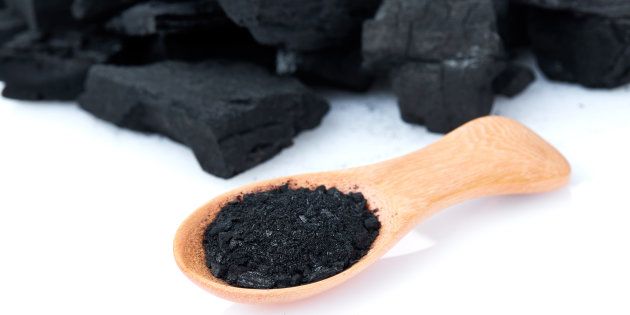What Exactly is Activated Charcoal?
Activated charcoal has become a well-talked about item these days because of its uses as a teeth whitener and as a skin treatment, but is it really a fad? Read up on the powder which has actually been used thousands of years ago!

Activated charcoal is a special form of carbon, which has been used from the times of ancient Egyptians. It is a fine black powder made from bone char, coconut shells, pear, petroleum coke, coal, olive pits, or sawdust. The charcoal is “activated” by processing it at very high temperatures.
Due to the high temperatures, the charcoal changes its internal structures and reduces the size of its pores, which in turn, increases its surface area. This means that activated charcoal is much more porous than regular charcoal. It should be noted however, that activated charcoal is very different from charcoal briquettes, which are lit to cook barbeque.
What Are Its Effects When Taken Orally?
When taken orally, activated charcoal charcoal works by trapping toxins and chemicals in the stomach, preventing absorption. Activated charcoal’s porous texture has a negative electrical charge, which causes it to attract positively charged molecules, such as toxins and gases.
This helps it trap toxins and chemicals in your stomach. And since activated charcoal is not absorbed by the body, it will be able to carry the toxins on its surface out of your body once you defecate. This is why activated charcoal is often used in cases of poisoning. Within one to four hours of consuming a toxin, an individual must take or be given activated charcoal. The charcoal will not work if the person has already digested the toxin or if the drug is no longer in the stomach.
It should be noted however, that charcoal is not effective against strong alkaline and acid poisons, cyanide, alcohol, caustic alkalis, boric acids and mineral acids.
There are various other uses for activated charcoal such as promoting kidney function, reducing symptoms of fish odor syndrome, reducing cholesterol levels, water filtration, hangover prevention, and gas reduction, amongst others. However, it is most famous now as something to use as a teeth whitener or as a skin treatment.
It has been affirmed by dental professionals that since activated charcoal is attracted to tannins, which are the toxins that can be found in dark colored drinks. Tannins are usually the reason why these dark colored drinks such as soda or wine stain your teeth, which is why activated charcoal brushing has a whitening effect.
What Does It Do For Your Skin?
As a skin treatment, activated charcoal draws bacteria, poisons, chemicals, dirt and other micro-particles to the surface of skin, helping you to achieve a flawless complexion and fight acne. It is proven to adsorb thousands of times its own mass in harmful substances, which makes it a popular ingredient in facial masks.
However, despite the positive effects activated charcoal may have, one should always use it with caution. Especially if one is taking it orally. It may cause constipation, nausea, and vomiting. Black stools is also a commonly reported side effect.
Activated charcoal may also reduce the absorption of certain medications. Therefore, individuals taking medications should consult their healthcare professional prior to taking it.
These are only some of the side effects of activated charcoal, this is why it is advised by health professionals to not take it in large amounts and/or long periods of time. For those who are currently experiencing the side effects, make sure to schedule an appointment with your healthcare provider right away. And for those who are unsure yet of who to approach, SeeYouDoc has a wide array of doctors whom you can schedule an appointment with!
References: Healthline
